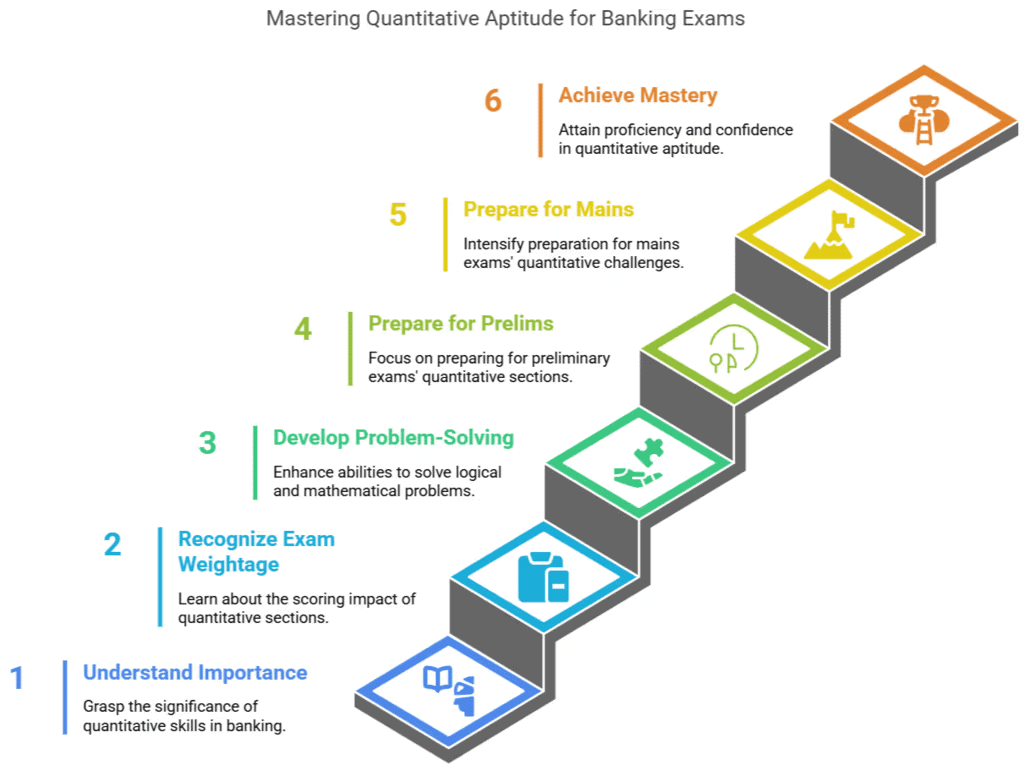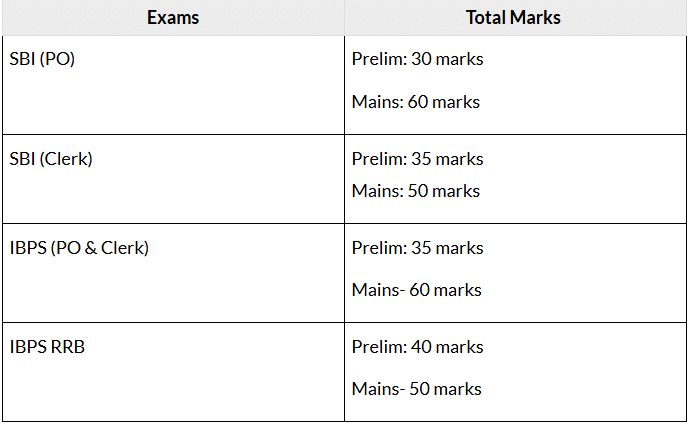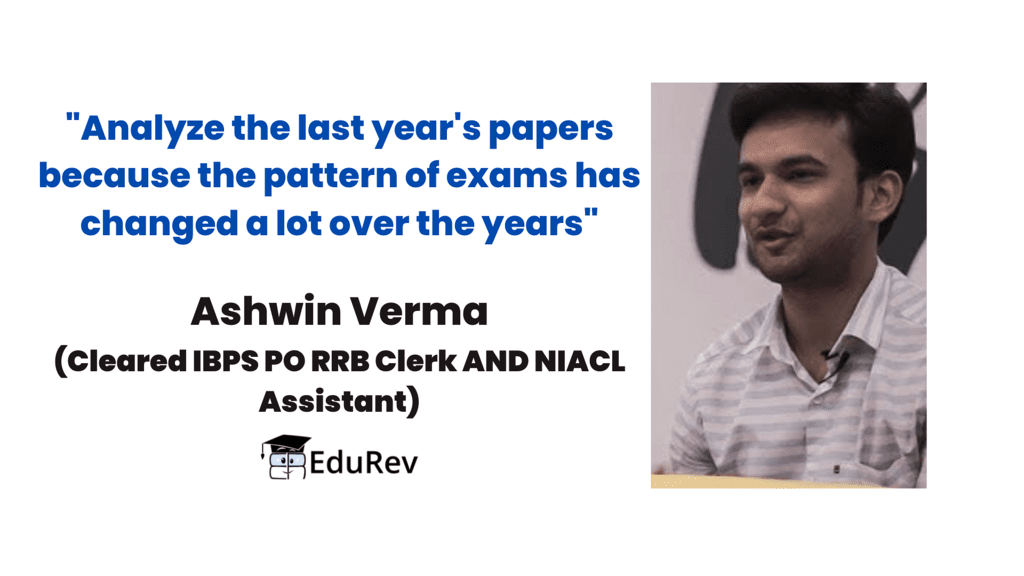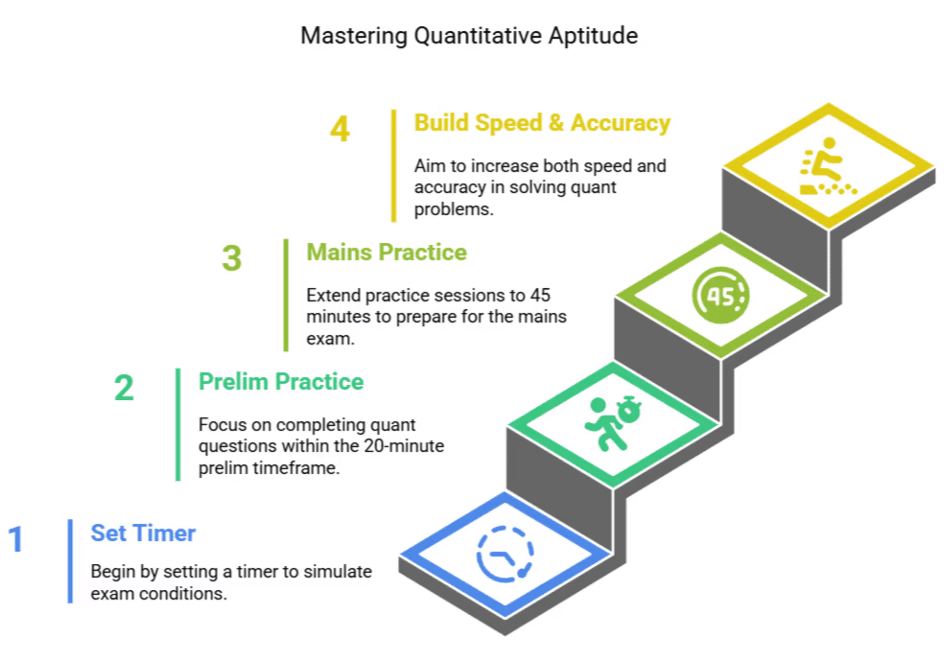Syllabus and Strategy for Quantitative Aptitude | RBI Grade B Mock Test Series & Past Year Papers 2025 - Bank Exams PDF Download
Introduction
EduRev has produced this tutorial to assist you in comprehending how to study Quantitative Aptitude as a subject in order to help you succeed in all types of exams, including PO, Clerk, and SO. You'll understand how to perform well in the Quant section once you've finished reading this document.
Importance of Quantitative Aptitude in Banking exams
Given that quant focuses on numbers and that you will spend your entire working day in banks, it is crucial to understand the significance of quant when preparing for banking exams. Number sense and a facility with mathematical concepts are especially useful in banking.
- Quantitative aptitude, commonly known as QA or Quant, is a key and highly regarded topic in bank exams.
- The weighted scores for the banking aptitude exam speak for themselves regarding the significance of this subject.
- QAs, or data interpretation-based questions, are systematic inspections that evaluate an applicant's aptitude and abilities. It evaluates the candidates' capacity for problem-solving.
- The fact that they are logic-based and have high scores increases the significance of QA. Yes, they could take a while, but once you grasp the reasoning behind them, you end up with more points in your score.
- Every bank exam has QA in both the preliminaries and the mains. Quant is part of the syllabus for banks like SBI (for Clerk & PO), IBPS (for Clerk & PO), IBPS RRB, and RBI Grade B to test the candidates' intelligence.
- SBI Exam (PO & Clerk): In the prelim exam of SBI PO and Clerk approximately 35-40 questions come from quant and in mains, the numbers increase to 40-50.
- IBPS Exam (PO & Clerk): In IBPS Prelims for both PO and Clerk, 35 questions out of 100 belong to QA and in its Mains exam out of 200 marks, 60 marks are of QA.
- IBPS RRB: The prelim exam of IBPS RRB includes 40 questions of QA out of a total of 80 questions asked. The main paper of IBPS RRB has 200 questions and 50 of them are to check your numerical ability and mathematical accuracy.
Since quantitative aptitude holds great importance in any banking exam, EduRev has offered you a step-by-step guide to help you finish your preparation.
Step 1: Understanding the weightage and syllabus of Quant
Before preparing for any exam, it is important to know the nitty-gritty of the exam well enough.Weightage of Quant:
SBI Exam (PO & Clerk): In the prelim exam of SBI PO and Clerk approximately 35-40 questions come from quant and in mains, the numbers increases to 40-50.
IBPS Exam (PO & Clerk): In IBPS Prelims for both PO and Clerk, 35 questions out of 100 belong to QA and in its Mains exam out of 200 marks, 60 marks are of QA.
IBPS RRB: The prelim exam of IBPS RRB includes 40 questions of QA out of a total of 80 questions asked. The Mains paper of IBPS RRB has 200 questions and 50 of them are to check your numerical ability and mathematical accuracy.

Syllabus of Quantitative Aptitude
For Prelims- Simplification
- Profit and Loss
- Mixtures and Allegations
- Simple Interest and Compound Interest
- Work & Time
- Time and Distance
- Work & Time
- Time and Distance
- Mensuration
- Data Interpretation
- Ratio, Proportion, and Percentage
- Number Systems
- Sequence & Series
- Permutation, Combination, and Probability
For Mains
- Simplification
- Statistics (Averages, Mean, Median, etc.)
- Representational Statistics (Graphs and Charts)
- Ratio and Proportion
- Percentages
- Data Interpretation
- Data Sufficiency
- Mensuration
- Geometry
- Linear Equations
- Quadratic Equations
- Simple and Compound Interest
- Speed, Distance, and Time
- Profit, Loss, and Discounts
- Time and Work Equations
- Permutations and Combinations
- Age Calculation Equations
- Number Systems
- Mixtures and Allegations
Step 2: Attempt Previous Year Questions and a Mock test at the start of your preparation
- It is strongly advised to take a mock test and the previous year's questions to assess the exam's level of questions that come in the quantitative ability section
- You begin to understand how important each topic is.
- The prior year's test questions are also available here.

Step 3: What strategies should you employ?
Long study sessions, having a large collection of challenging literature around, isolating oneself from the environment, and many other traditional strategies will only make matters worse. Therefore, one should smartly strategize on how to approach the learning phase.
Step 3.1 Concept Learning
An aspirant requires patience in this phase. There is no scale for measuring the level of conceptual clarity.
- One should START with Vedic Maths. This will give you clarity about the fundamentals of math.
- Your next action should be Simplification. The clarity in conceptual clarity in simplification is important. Once you are confident in your conceptual understanding, regularly practice at least 15 - 20 questions to improve your speed and accuracy.
- Number Series and Quadratic Equations should come next. After thoroughly understanding both topics, practice them.
- Practice at least 10 - 20 questions every day while learning these topics. When you are confident that you are experienced on a topic, practice by answering at least 10 questions from the Missing case and 10 questions from the Wrong category.
- Learn the 4-Step, 2-Step, Linear Equations, root-based, sign-based, huge number-based, and other types of questions for Quadratic. Every day, solve at least 15 quadratic equations.
- The Arithmetic section requires patience. The fundamentals of percentages should be the first subject you cover because they will be useful in subsequent chapters. Learn the concept from the ground up. proceed to ratio and proportion next.
- Prepare Pre-level DI after that. Then thoroughly and consistently practice the DI questions. Cover the concept first, then lay the groundwork for DI.
- Continue to the Allegations section, followed by the Profit and loss section. Every issue should have solid fundamentals at its core.
- The majority of students skip over subjects like probability and Mensuration. Because the goal of these exams is to outperform the competition, you shouldn't pay attention to what other people are doing. To create a solid conceptual basis, you should not skip over these areas.
Step 3.2 Practice! Practice! Practice!
What makes a man perfect? Practice!
- Daily schedule of your practice should include all the topics you’ve covered thoroughly and the new topics that you’re covering
- Practice with previous year's exam questions. Examining the question papers from prior years' bank exams will always give a candidate a better understanding of the crucial subjects and the format of the bank exam.
- You can refer to RS Aggarwal books for practice and building the basis of the concept.
- After you’re confident about the topics in quant. GIVE A MOCK TEST OF THE MAINS LEVEL. You will face a little difficulty while preparing after this.
- Practice upper-level questions ie. Mains level questions. You have to adapt to this transition because till now you were solving pre-level questions. This will help you bring more clarity and in-depth knowledge of the topic. You’ll also know what kind of questions can come in the mains level exam.
Step 4: Set a timer for your Sectional Practice
- You will have to note that you are given a fixed time to attempt the quantitative aptitude section. Therefore you must attempt the questions quickly.
- For quant you’re allocated timings accordingly
In Prelim exam: 20 Minutes
In Mains exam: 45 Minutes
You need to build up your speed up to that level that you’re able to attempt most questions with greater accuracy. - Practice sectional tests here

Step 5: Solve a lot of Mock Tests
- Start giving Mocks. Initially, you need not give many mock tests but week by week give at least 2 Mock tests. Gradually increase the frequency of the Mocks. This will help you identify your weak and strong areas.
- During the last 30 days, give mock tests on alternative days.
- Once you start giving a lot of tests, you will discover in your analysis the strong and the weak areas in your preparation.
- You can practice your Mock test from the EduRev platform with a time limit.
- EduRev automatically analyzes your exam based on your speed and accuracy.
Check out the sectional strategies here:
|
116 docs|51 tests
|
FAQs on Syllabus and Strategy for Quantitative Aptitude - RBI Grade B Mock Test Series & Past Year Papers 2025 - Bank Exams
| 1. What is the importance of Quantitative Aptitude in banking exams? |  |
| 2. How can I effectively prepare for the Quantitative Aptitude section? |  |
| 3. Why should I attempt previous year questions before starting my preparation? |  |
| 4. How can I improve my speed in solving quantitative problems? |  |
| 5. Why is solving mock tests important in preparing for banking exams? |  |






















